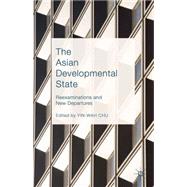This collection addresses the concept of the developmental state, which has emerged in the Asian context to account for the rapid economic transformation of certain countries. It considers the following key questions on this topic: to what extent are the practices identified as part of the 'developmental state' unique to Asia, and in what ways can a broader historical outlook of state-market relationships enrich the analysis of this concept? What transferable ideas can be gleaned from the Asian developmental state and what reasons underlie the prominence of 'embedded autonomy'?
Given the continental scale and divergent political-institutional setups of China and India, the book considers whether the concept of the developmental state can shed light on the processes and prospects of their economic transformation, and whether the dynamic interaction between the central and local states undermines or promotes development programs. Also, with South Korea and Taiwan experiencing democratization and graduating from the catch-up phase, it examines to what extent they are still susceptible to the analysis of the developmental state.
Re-examining this concept and assessing its value for the emerging economies of China and India, and its applicability to South Korea and Taiwan, the answers proposed in this volume have implications for the future of China, Asia, and the world order.
Given the continental scale and divergent political-institutional setups of China and India, the book considers whether the concept of the developmental state can shed light on the processes and prospects of their economic transformation, and whether the dynamic interaction between the central and local states undermines or promotes development programs. Also, with South Korea and Taiwan experiencing democratization and graduating from the catch-up phase, it examines to what extent they are still susceptible to the analysis of the developmental state.
Re-examining this concept and assessing its value for the emerging economies of China and India, and its applicability to South Korea and Taiwan, the answers proposed in this volume have implications for the future of China, Asia, and the world order.






